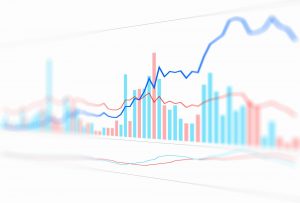Making the Journey from Retail to Institutional Trading

The forex market is a global, decentralised and interconnected space of several elements, including banks, liquidity providers, brokers and traders. Individual traders come from diverse backgrounds, right from new entrants to seasoned currency traders.
Low barriers to entry, global round-the-clock accessibility and the scope of leveraged trading make the forex market a popular choice for them to participate in the world’s financial arena.
While each trader has their own set of objectives while trading forex, they can be broadly categorised into two major classes: institutional and retail.
Retail Traders
Until the late 1990s, forex trading was mainly done by large financial institutions and corporate houses. Retail investors formed a very small fraction of the market, comprising only those who could afford to pay the hefty transaction fees charged by banks. With the advent of computerised trading, private investors could access online margin brokerage accounts at reasonable charges. Retail trading proliferated quickly, such that by 2013, it occupied 3.5% of the total market turnover, according to the Bank of International Settlements.
Retail traders buy and sell currencies from their personal margin accounts, not on behalf of a company or financial institution. They participate indirectly in the market through brokers or banks. Trading education is gained largely through the internet and brokerage firms. Many brokers now offer extensive information and training for their customers.
These traders are required to pay a commission or “mark-up” to the brokers for providing them access to the best prices in the market for trade execution. In turn, brokers also allow them the benefit of leveraged trading. The retail segment is a small portion of the forex market, which means that their trading activities don’t affect exchange rates or price fluctuations in the market as a whole.
They either have short-term strategies, like scalping and day-trading, or long-term investment strategies, arising from trends in currency movements. They also rely heavily on technical analysis, studying past price patterns or indicators to predict future price action.
In recent years, regulatory restrictions in countries like the US and EU, including leverage limits and minimum capital requirements, have slowed down the growth of this segment. Catastrophic losses on account of poor risk management and using too much leverage has also been an issue. This is why major online trading platforms have started focusing on professional or institutional traders.
Institutional Traders
The exact opposite of retail traders, these investors work for financial institutions, such as banks, hedge funds, pension funds, investment houses and corporations. Unlike retail investors, they possess the needed qualifications and extensive knowledge in areas like economics, mathematics or management, which makes them eligible to manage huge sums of money for their organisations.
They are often called “execution only” traders, since they make money for their organisations rather than seeking personal profits. Institutional traders rely strongly on market fundamentals. They actively analyse the economic statistics of their respective countries, provided by institutions like central banks and governments. Apart from that, they evaluate market sentiment as well. They focus massively on proper risk management and rarely use huge leverage.
This is because unlike retail traders, institutional traders are sufficiently capitalised with access to top liquidity providers, so they do not have to resort to excessive risk-taking activities in order to meet their trading goals. This also forms a foundation for good trading psychology. Money making is their objective, but they cannot afford to lose millions of their client’s funds. Doing so would put their career at stake.
Technology obviously has been a strong support for institutional traders, who have access to the fastest news feeds and trade terminals, such as Bloomberg and Reuters Ikon.
Forex is a premier market, with an average daily turnover of $5.1 trillion, according to a Triennial Central Bank Survey. Whether an individual retail investor or part of an institutional framework, having a robust trading strategy, adequate risk capital and good trader psychology is essential to survive and achieve one’s profit goals in the forex market.
